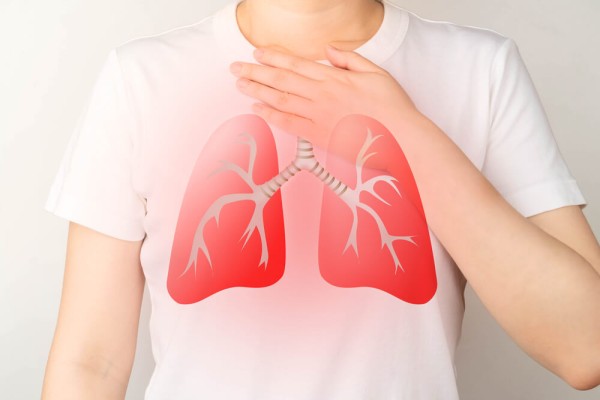
When you can't breathe: Pneumonia
Lung inflammation usually comes more quickly than it should and hits right to the core. But what are the typical characteristics of pneumonia and how can it be prevented? You can find out more about this annoying respiratory disease here.
Lung inflammation, also known as pneumonia, is a respiratory disease that is usually caused by bacteria. It causes inflammation of the lungs and the surrounding tissue in the lungs. As a result, the vital gas exchange can be impaired and the body cannot be supplied with sufficient oxygen. In most cases, this is caused by pneumococci, but less frequently by viruses, parasites or fungi. In addition, stimuli such as gases or radiation, foreign substances in the airways and certain functional disorders can also lead to pneumonia.
Pneumonia should by no means be underestimated. Every year, more than 500,000 people suffer from this disease. About half of those affected have to go to hospital and over 20,000 people die from the respiratory disease. This even puts it in the Top 10 most frequent causes of death in Germany, partly because it is often diagnosed far too late.
The symptoms of pneumonia
In the beginning, pneumonia is often characterised by signs of a typical cold, such as headache or a cold. However, if it picks up speed, the following symptoms can also occur:
- High fever
- Chest pain
- Cough with purulent or bloody sputum .
- Shivering
- Breathlessness and whistling breath .
- Rapid pulse
The symptoms vary depending on the type of infection and the person themselves. Small children and senior citizens do not always show all the typical symptoms. Other complaints, such as diarrhoea, may occur. Doctors also distinguish between pneumonia, which occurs in everyday life, and so-called atypical infections. The latter are usually caused in hospital by different germs. Here, pneumonia can be added to already existing diseases and make treatment much more difficult. While a normal infection with pneumococci can be treated well with antibiotics, the atypical variant is treated differently. Due to the variety of different pathogens, the symptoms can usually only be alleviated.
When it is time to visit the doctor
If the pneumonia becomes more severe, a lack of oxygen can often be the result.Because the lung bubbles, which are responsible for the important exchange of gases in the body, no longer function as they should. The blood is not supplied with enough oxygen from the air. At the same time, the removal of carbon dioxide from the blood is hindered. In such a case, it is high time for medical treatment, where blood is usually taken, the lungs are examined and an x-ray of the important oxygen supplier is made.
Our tip: If you are unsure whether you need medical help or not, simply use a stopwatch, a blood pressure monitor or a modern smartwatch. If you have more than 30 breaths per minute and your blood pressure has dropped significantly, it can be serious and dangerous.
Duration of pneumonia
With a quick diagnosis, sufficient bed rest and plenty of fluids pneumonia can subside after just one to two weeks. The situation is different if it is recognised too late or if it is the atypical variant. In this case, pneumonia can extend over several weeks and cause threatening sequelae such as meningitis or blood poisoning.
The right prevention
Lung infections can be contagious and are usually transmitted through sneezing, coughing or talking. Whether the disease breaks out or not depends on one's own immune system. With a healthy immune system, the pathogens can already be defeated in the mouth and throat area and the outbreak of pneumonia can be prevented.
Therefore:
Exercise your immune system regularly, do enough sport, breathe plenty of fresh air and eat a healthy diet rich in vitamins.
Vaccination can help
Another way to protect yourself from pneumonia is to get a vaccination. More than 20 different types of pneumococcus can be kept in check and the risk of infection reduced by up to 90%. Vaccination is especially recommended for people with weak immune systems or pre-existing conditions.
